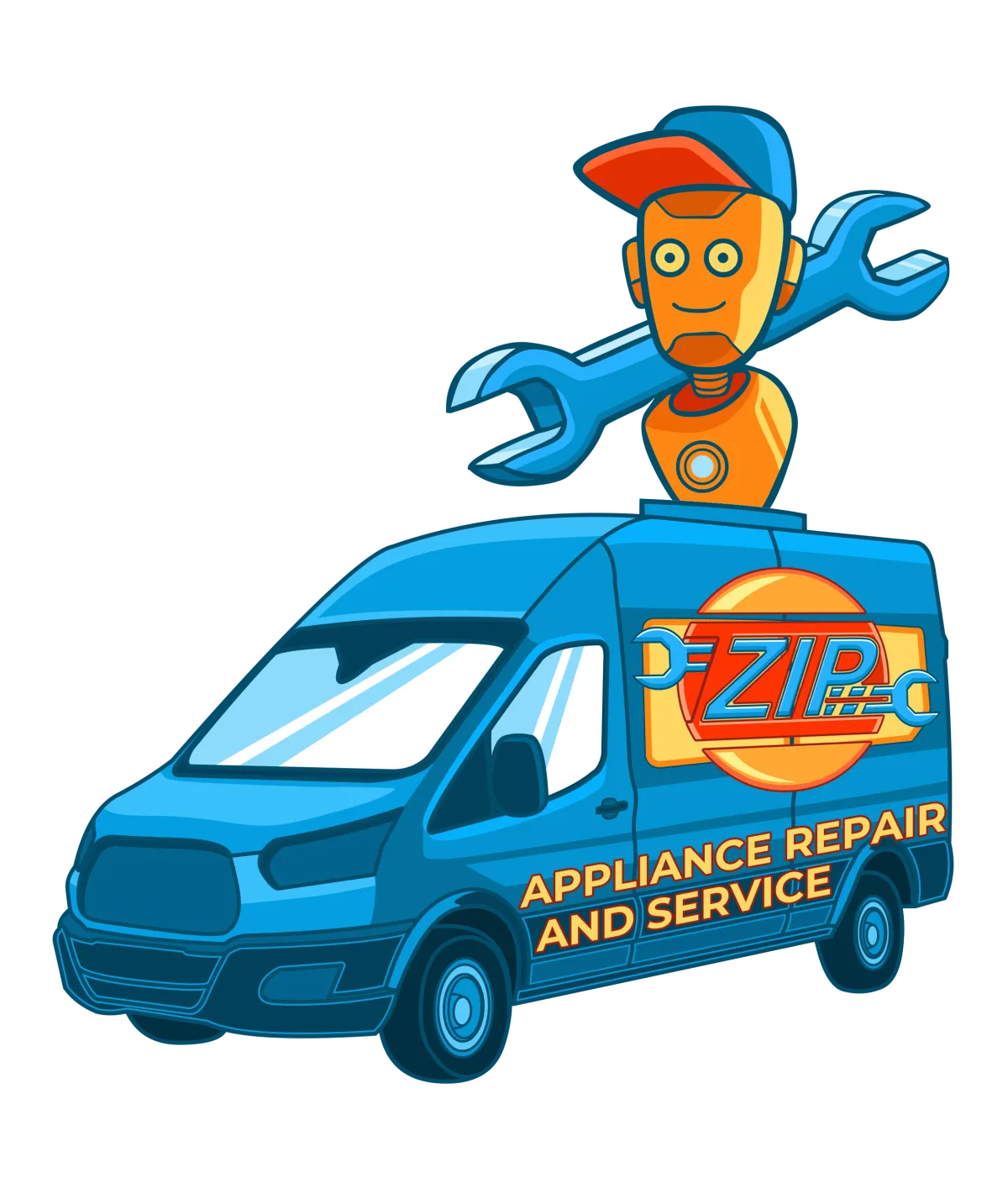Phone: (559) 272-4265
Appliance Repair Tips For Bakersfield, CA Residents

Gas Line Installation: Expert Tips & Tricks
Expert Advice: Gas Line Installation
Introduction:
Gas line installation plays a crucial role in both residential and commercial settings, serving as the lifeline for various appliances such as stoves, water heaters, and furnaces. Beyond mere convenience, the proper installation of gas lines is paramount for ensuring the safety of occupants and protecting the property from potential hazards. In this comprehensive guide, we'll explore the intricacies of gas line installation, highlighting its importance and addressing the complexities involved.
Understanding Gas Line Installation:
Gas lines serve as conduits for transporting natural gas or propane from the main supply to individual appliances. Whether it's powering a cozy fireplace or providing heat for cooking, gas lines are indispensable in modern living. However, the significance of proper installation cannot be overstated. Inadequate installation or negligence in adhering to safety protocols can lead to catastrophic consequences, including fires, explosions, and health hazards due to gas leaks.

Preparation Steps:
Before embarking on a gas line installation project, thorough preparation is essential. This involves assessing the installation location to determine factors such as proximity to appliances, ventilation requirements, and accessibility for maintenance purposes. Additionally, obtaining the necessary permits and approvals from local authorities ensures compliance with safety regulations and building codes. Equally important is the gathering of tools and materials required for the job, ranging from pipe wrenches and pipe cutters to fittings and piping.
Safety Precautions:
Safety should always be the foremost concern when working with gas lines. Protective gear such as gloves, safety goggles, and respiratory masks are imperative to shield against potential hazards. Furthermore, the use of specialized equipment, including pressure gauges and leak detectors, aids in identifying and mitigating risks associated with gas leaks. Strict adherence to safety protocols, such as proper handling of gas leaks and fire prevention measures, is essential to safeguard both property and personnel.
Choosing the Right Pipe:
Selecting the appropriate type of pipe is a critical decision in the gas line installation process. Various options, such as rigid steel, flexible corrugated stainless steel tubing (CSST), and polyethylene, offer distinct advantages and disadvantages. Factors such as durability, flexibility, and resistance to corrosion must be carefully considered to ensure optimal performance and longevity of the gas line.
Planning the Installation:
Effective planning lays the groundwork for a successful gas line installation project. This entails creating a detailed plan that outlines the route of the gas line, considering factors such as structural obstacles, building layout, and potential challenges. By meticulously mapping out the installation process, potential issues can be identified and addressed proactively, minimizing disruptions and ensuring a seamless workflow.
Installation Process:
The installation process itself is a step-by-step endeavor that demands precision and attention to detail. From preparing the installation area by clearing debris and ensuring adequate ventilation to measuring and cutting pipes to the correct length, each task contributes to the overall success of the project. Following a systematic approach and incorporating tips for a smooth installation process can help avoid common pitfalls and ensure the safe and efficient operation of the gas line.
Testing and Inspection:
Upon completion of the installation, thorough testing and inspection are imperative to verify the integrity and safety of the gas line. This involves conducting pressure tests to detect leaks and utilizing leak detection methods such as soap bubble tests or electronic detectors. Additionally, adherence to inspection procedures and regulatory requirements is essential to ensure compliance with safety standards and regulations.
Troubleshooting:
Despite careful planning and execution, challenges may arise during or after the installation process. Common issues such as leaks or incorrect fittings must be addressed promptly to prevent potential hazards and ensure the reliability of the gas line. Knowing when to seek professional assistance is crucial in resolving complex problems effectively and safeguarding the integrity of the installation.
Maintenance and Care:
Regular maintenance is vital for preserving the efficiency and longevity of the gas line system. This includes routine inspections to check for signs of wear, corrosion, or damage, as well as cleaning or replacing filters and components as needed. Being proactive in addressing maintenance requirements helps prevent costly repairs and ensures the continued safety and functionality of the gas line.
Conclusion:
In conclusion, gas line installation is a multifaceted process that demands careful planning, execution, and maintenance to ensure safety and efficiency. By following expert tips and best practices, homeowners and contractors can navigate the complexities of gas line installation with confidence, knowing that the safety of occupants and property is paramount. For professional gas line installation and repair services in Bakersfield, California, look no further than Zip Appliance and Plumbing Repair. With their expertise and commitment to excellence, they offer a comprehensive range of plumbing services, including water heater repair, leak detection, and toilet installation. Trust Zip Appliance and Plumbing Repair to deliver reliable solutions tailored to your needs, backed by a dedication to customer satisfaction. Contact Zip Appliance and Plumbing Repair today at (661) 387-2282 or visit their website at www.ziprepairservice.com to schedule your gas line installation or repair service.

Gas Line Installation: Expert Tips & Tricks
Expert Advice: Gas Line Installation
Introduction:
Gas line installation plays a crucial role in both residential and commercial settings, serving as the lifeline for various appliances such as stoves, water heaters, and furnaces. Beyond mere convenience, the proper installation of gas lines is paramount for ensuring the safety of occupants and protecting the property from potential hazards. In this comprehensive guide, we'll explore the intricacies of gas line installation, highlighting its importance and addressing the complexities involved.
Understanding Gas Line Installation:
Gas lines serve as conduits for transporting natural gas or propane from the main supply to individual appliances. Whether it's powering a cozy fireplace or providing heat for cooking, gas lines are indispensable in modern living. However, the significance of proper installation cannot be overstated. Inadequate installation or negligence in adhering to safety protocols can lead to catastrophic consequences, including fires, explosions, and health hazards due to gas leaks.

Preparation Steps:
Before embarking on a gas line installation project, thorough preparation is essential. This involves assessing the installation location to determine factors such as proximity to appliances, ventilation requirements, and accessibility for maintenance purposes. Additionally, obtaining the necessary permits and approvals from local authorities ensures compliance with safety regulations and building codes. Equally important is the gathering of tools and materials required for the job, ranging from pipe wrenches and pipe cutters to fittings and piping.
Safety Precautions:
Safety should always be the foremost concern when working with gas lines. Protective gear such as gloves, safety goggles, and respiratory masks are imperative to shield against potential hazards. Furthermore, the use of specialized equipment, including pressure gauges and leak detectors, aids in identifying and mitigating risks associated with gas leaks. Strict adherence to safety protocols, such as proper handling of gas leaks and fire prevention measures, is essential to safeguard both property and personnel.
Choosing the Right Pipe:
Selecting the appropriate type of pipe is a critical decision in the gas line installation process. Various options, such as rigid steel, flexible corrugated stainless steel tubing (CSST), and polyethylene, offer distinct advantages and disadvantages. Factors such as durability, flexibility, and resistance to corrosion must be carefully considered to ensure optimal performance and longevity of the gas line.
Planning the Installation:
Effective planning lays the groundwork for a successful gas line installation project. This entails creating a detailed plan that outlines the route of the gas line, considering factors such as structural obstacles, building layout, and potential challenges. By meticulously mapping out the installation process, potential issues can be identified and addressed proactively, minimizing disruptions and ensuring a seamless workflow.
Installation Process:
The installation process itself is a step-by-step endeavor that demands precision and attention to detail. From preparing the installation area by clearing debris and ensuring adequate ventilation to measuring and cutting pipes to the correct length, each task contributes to the overall success of the project. Following a systematic approach and incorporating tips for a smooth installation process can help avoid common pitfalls and ensure the safe and efficient operation of the gas line.
Testing and Inspection:
Upon completion of the installation, thorough testing and inspection are imperative to verify the integrity and safety of the gas line. This involves conducting pressure tests to detect leaks and utilizing leak detection methods such as soap bubble tests or electronic detectors. Additionally, adherence to inspection procedures and regulatory requirements is essential to ensure compliance with safety standards and regulations.
Troubleshooting:
Despite careful planning and execution, challenges may arise during or after the installation process. Common issues such as leaks or incorrect fittings must be addressed promptly to prevent potential hazards and ensure the reliability of the gas line. Knowing when to seek professional assistance is crucial in resolving complex problems effectively and safeguarding the integrity of the installation.
Maintenance and Care:
Regular maintenance is vital for preserving the efficiency and longevity of the gas line system. This includes routine inspections to check for signs of wear, corrosion, or damage, as well as cleaning or replacing filters and components as needed. Being proactive in addressing maintenance requirements helps prevent costly repairs and ensures the continued safety and functionality of the gas line.
Conclusion:
In conclusion, gas line installation is a multifaceted process that demands careful planning, execution, and maintenance to ensure safety and efficiency. By following expert tips and best practices, homeowners and contractors can navigate the complexities of gas line installation with confidence, knowing that the safety of occupants and property is paramount. For professional gas line installation and repair services in Bakersfield, California, look no further than Zip Appliance and Plumbing Repair. With their expertise and commitment to excellence, they offer a comprehensive range of plumbing services, including water heater repair, leak detection, and toilet installation. Trust Zip Appliance and Plumbing Repair to deliver reliable solutions tailored to your needs, backed by a dedication to customer satisfaction. Contact Zip Appliance and Plumbing Repair today at (661) 387-2282 or visit their website at www.ziprepairservice.com to schedule your gas line installation or repair service.
If your dryer has been giving you problems, contact Zip Appliance Repair & Service at (661) 387-2282

Appliance Repair In A Zip
If you need a dryer repair call our Team at (661) 387-2282, or visit our online scheduling page to request service.
Appliance Repair
Plumbing Repair Services
HAVE A QUESTION, CALL (661) 387-2282

Online Offers
Take advantage of our online discount offers - save time and money...

Residential & Commercial appliances
See what our company can do for you

Appliance Repair Tips
If your appliance is not working properly...

1405 Commercial Way ste 100
Bakersfield, CA 93309
Lic # 1116346
Equipment We Sevice
- A Call To Confirm Your Appointment Time
- A Email Detailing Your Assigned Technician
- Information Needed Before The Repair Can Be Started
- An Estimate Of Work To Be Done
© 2024 ZIP APPLIANCE REPAIR & SERVICE LLC








